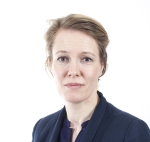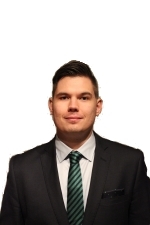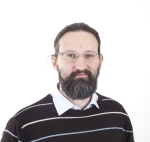Team
Direction
 The ReImag project and its Turku subproject leader Dr Kimmo Rentola is Professor of Political History at the University of Helsinki (Professor of Contemporary History at the University of Turku 2006-2014). He has published extensively in several languages on Finnish-Soviet relations, Finnish and Nordic communism, intelligence and security issues, and the 1968 movements. Of particular interest for the ReImag project are his 2005 book on the changing position of Finland from 1968 to 1971, and his 2009 book on the Finnish security and intelligence service, covering the fall of the Soviet Union and the end of the Cold War. Strongly networked internationally, Rentola has been a member of the board of two Nordic and Central European research projects on related issues.
The ReImag project and its Turku subproject leader Dr Kimmo Rentola is Professor of Political History at the University of Helsinki (Professor of Contemporary History at the University of Turku 2006-2014). He has published extensively in several languages on Finnish-Soviet relations, Finnish and Nordic communism, intelligence and security issues, and the 1968 movements. Of particular interest for the ReImag project are his 2005 book on the changing position of Finland from 1968 to 1971, and his 2009 book on the Finnish security and intelligence service, covering the fall of the Soviet Union and the end of the Cold War. Strongly networked internationally, Rentola has been a member of the board of two Nordic and Central European research projects on related issues.
 The Helsinki subproject leader Dr Juhana Aunesluoma (DPhil University of Oxford 1998) is Research Director at the Network for European Studies, University of Helsinki. His research interests are the Nordic region in the Cold War, Finnish foreign and foreign trade policy in the 20th century, and the conceptual and empirical study of the interplay of the international political economy with foreign and security policy. His work in the ReImag project focuses on the systemic transformation of the European, Baltic and Nordic region at the end of the Cold War, Finnish foreign and integration policy decision-making, domestic politics of foreign policy, the entry of Finland into the EU, and the role of perceptions and future expectations in political decision-making.
The Helsinki subproject leader Dr Juhana Aunesluoma (DPhil University of Oxford 1998) is Research Director at the Network for European Studies, University of Helsinki. His research interests are the Nordic region in the Cold War, Finnish foreign and foreign trade policy in the 20th century, and the conceptual and empirical study of the interplay of the international political economy with foreign and security policy. His work in the ReImag project focuses on the systemic transformation of the European, Baltic and Nordic region at the end of the Cold War, Finnish foreign and integration policy decision-making, domestic politics of foreign policy, the entry of Finland into the EU, and the role of perceptions and future expectations in political decision-making.
 The Tampere subproject leader Dr Hiski Haukkala (DrSocSc University of Turku 2008) is an Associate Professor of International Relations at the University of Tampere. He is currently working as a Special Adviser at the Unit for Policy Planning and Research at the Finnish Ministry for Foreign Affairs in Helsinki. In 2014, he is also a Visiting Professor at the College of Europe at Natolin in Warsaw. His research has dealt with EU foreign policy and relations with Eastern Europe, with Russia in particular. His recent works include The EU-Russia Strategic Partnership: The Limits of Post-Sovereignty in International Relations (Routledge 2010) and National Pespectives on Russia: European Foreign Policy in the Making? (co-edited together with Maxine David & Jackie Gower, Routledge 2013). Hiski is on Twitter @HiskiHaukkala.
The Tampere subproject leader Dr Hiski Haukkala (DrSocSc University of Turku 2008) is an Associate Professor of International Relations at the University of Tampere. He is currently working as a Special Adviser at the Unit for Policy Planning and Research at the Finnish Ministry for Foreign Affairs in Helsinki. In 2014, he is also a Visiting Professor at the College of Europe at Natolin in Warsaw. His research has dealt with EU foreign policy and relations with Eastern Europe, with Russia in particular. His recent works include The EU-Russia Strategic Partnership: The Limits of Post-Sovereignty in International Relations (Routledge 2010) and National Pespectives on Russia: European Foreign Policy in the Making? (co-edited together with Maxine David & Jackie Gower, Routledge 2013). Hiski is on Twitter @HiskiHaukkala.
 Dr Jussi Hanhimäki is a Professor of International History at the Graduate Institute of International and Development Studies in Geneva. He has published widely on American foreign policy, transatlantic relations, and Cold War international history. His most recent books include The Rise and Fall of Détente: American Foreign Policy and the Transformation of the Cold War (2012); Transatlantic Relations Since 1945 (2012); United Nations: A Very Short Introduction (2008) and International History of the Twentieth Century and Beyond (2008). He has also published articles and reviews in journals including Diplomatic History, Diplomacy and Statecraft, The International History Review, and Relations Internationales. In 2007-2011, Professor Hanhimäki was Finland Distinguished Professor at the University of Tampere.
Dr Jussi Hanhimäki is a Professor of International History at the Graduate Institute of International and Development Studies in Geneva. He has published widely on American foreign policy, transatlantic relations, and Cold War international history. His most recent books include The Rise and Fall of Détente: American Foreign Policy and the Transformation of the Cold War (2012); Transatlantic Relations Since 1945 (2012); United Nations: A Very Short Introduction (2008) and International History of the Twentieth Century and Beyond (2008). He has also published articles and reviews in journals including Diplomatic History, Diplomacy and Statecraft, The International History Review, and Relations Internationales. In 2007-2011, Professor Hanhimäki was Finland Distinguished Professor at the University of Tampere.
Senior Researchers
 Dr Anni Kangas (DrSocSc University of Tampere 2008) is a Postdoctoral Researcher in International Relations at the University of Tampere. Her current research focuses on the role of Russia in international politics, political economy of Russia’s economic globalization, and Finnish-Russian relations. She is interested in the contribution of IR pragmatism in understanding questions of continuity and change in Finnish-Russian relations.
Dr Anni Kangas (DrSocSc University of Tampere 2008) is a Postdoctoral Researcher in International Relations at the University of Tampere. Her current research focuses on the role of Russia in international politics, political economy of Russia’s economic globalization, and Finnish-Russian relations. She is interested in the contribution of IR pragmatism in understanding questions of continuity and change in Finnish-Russian relations.
Dr Suvi Kansikas (PhD, University of Helsinki, 2012) is a Postdoctoral Researcher at the Network for European Studies, University of Helsinki. Her main research interests include the history of the socialist bloc and European integration as well as Soviet/Russian integration policy. She is currently working on the socialist countries’ economic and political reforms during perestroika as well as their integration into the West. Her recent book is entitled Socialist Countries face the European Community: Soviet-bloc controversies over East-West trade (Peter Lang Edition 2014).
 Dr Kaarel Piirimäe (PhD University of Cambridge 2009) is Professor of Military History at the Estonian National Defence College and Research Fellow at the Institute of History and Archaeology, University of Tartu. He has published extensively on the role of the Baltic question in international politics during the Second World War and the Cold War period. He is finishing his monograph Roosevelt, Churchill and the Baltic Question: Allied Relations during the Second World War (Palgrave MacMillan 2014) and has co-edited the book The Baltic Sea Region and the Cold War (Peter Lang 2012). His work for ReImag focuses on the origins of Estonia’s independent foreign and security policies in the late 1980s and the early 1990s.
Dr Kaarel Piirimäe (PhD University of Cambridge 2009) is Professor of Military History at the Estonian National Defence College and Research Fellow at the Institute of History and Archaeology, University of Tartu. He has published extensively on the role of the Baltic question in international politics during the Second World War and the Cold War period. He is finishing his monograph Roosevelt, Churchill and the Baltic Question: Allied Relations during the Second World War (Palgrave MacMillan 2014) and has co-edited the book The Baltic Sea Region and the Cold War (Peter Lang 2012). His work for ReImag focuses on the origins of Estonia’s independent foreign and security policies in the late 1980s and the early 1990s.
Junior Researchers
 Mr Tapio Juntunen (MSocSc University of Tampere 2010) is a doctoral candidate and researcher in the School of Management at the University of Tampere. His research interests include the history of Finnish foreign and security policy, critical security studies and the interconnections between the study of international history and international relations. He is currently working on his doctoral dissertation that examines the effects of the Cold War nuclear policies in the Finnish foreign policy between 1985 and 1991. Tapio is on Twitter @tapiojuntunen.
Mr Tapio Juntunen (MSocSc University of Tampere 2010) is a doctoral candidate and researcher in the School of Management at the University of Tampere. His research interests include the history of Finnish foreign and security policy, critical security studies and the interconnections between the study of international history and international relations. He is currently working on his doctoral dissertation that examines the effects of the Cold War nuclear policies in the Finnish foreign policy between 1985 and 1991. Tapio is on Twitter @tapiojuntunen.
 Ms Mari Luukkonen (MPolSc University of Helsinki 2005) is a doctoral candidate at the Department of Political Science and Contemporary History, University of Turku. She is currently working on her doctoral dissertation that examines the role and significance of Finnish Security Intelligence Service (Supo) in Finnish society and political decision making from 1979 to the early 1990s. Her aim is to analyze how the changes in East-West relations reflected on Supo’s operations, its organizational development and societal role. How did Supo assess the changes in its operating environment, what kind of information did it produce for the Finnish political decision-makers and, most importantly, what was the impact of that information on Finnish national security?
Ms Mari Luukkonen (MPolSc University of Helsinki 2005) is a doctoral candidate at the Department of Political Science and Contemporary History, University of Turku. She is currently working on her doctoral dissertation that examines the role and significance of Finnish Security Intelligence Service (Supo) in Finnish society and political decision making from 1979 to the early 1990s. Her aim is to analyze how the changes in East-West relations reflected on Supo’s operations, its organizational development and societal role. How did Supo assess the changes in its operating environment, what kind of information did it produce for the Finnish political decision-makers and, most importantly, what was the impact of that information on Finnish national security?

Mr. Matti Pesu (MSocSci 2014 University of Tampere) is a doctoral candidate and researcher at the School of Management, University of Tampere. He is working on his doctoral thesis on the changes occurred in Finnish foreign policy at the end of the Cold War and at the beginning of the post-Cold War era. In his research, Pesu concentrates on Mauno Koivisto’s role and beliefs, Finnish policy towards the independence processes of the Baltic states from the viewpoint of logics of decision-making, and the change of the Finnish foreign policy identity. Matti is also co-editor at the Ulkopolitist blog, and you can find him on Twitter as well, @PesuMatti.
 Mr Juha-Matti Ritvanen (MSocSc University of Turku 2011) is a doctoral candidate at the Department of Political Science and Contemporary History, University of Turku. His principal research interests include Finnish foreign and security policy and Finnish-Soviet relations. He is currently working on his doctoral dissertation that examines the Finnish foreign policy decision making between 1989 and 1991 that led to changes in the Paris Peace Treaty and the Treaty of Friendship, Cooperation and Mutual Assistance (the FCMA Treaty).
Mr Juha-Matti Ritvanen (MSocSc University of Turku 2011) is a doctoral candidate at the Department of Political Science and Contemporary History, University of Turku. His principal research interests include Finnish foreign and security policy and Finnish-Soviet relations. He is currently working on his doctoral dissertation that examines the Finnish foreign policy decision making between 1989 and 1991 that led to changes in the Paris Peace Treaty and the Treaty of Friendship, Cooperation and Mutual Assistance (the FCMA Treaty).
Associates
Ms Viivi Berghem (MSocSc University of Helsinki 2013) is orientating towards her post-graduate studies in Political History, University of Helsinki. Her area of interest is the concept of Finnish neutrality and how neutral countries were given the role of a mediator or “bridge builder” in Mikhail Gorbachev’s New Thinking. Her research focuses on three core areas: trends of Finnish neutrality, the change of Soviet attitude towards neutral states and the end game of the neutrality debate in Finno-Soviet relations during Mr Gorbachev’s official visit to Finland in October 1989 in which the Declaration of Helsinki was given.
 Dr Louis Clerc (Doctorat en Histoire des Relations Internationales, Université de Strasbourg 2007) is a Senior Lecturer in Contemporary History at the University of Turku. He also works as an editor of the Revue d’Histoire Nordique. His research interests are in contemporary international history, and more specifically in the History of Franco-Nordic relations, public and image diplomacy and the history of diplomatic practices. His PhD dealt with French policy in Northern Europe during the Interwar period. Clerc’s work in the ReImag project focuses on the evolutions and transformations of Finnish cultural and public diplomacy during and after the Cold War. Louis is on Twitter @Luikki and has a blog called The Ogre of the Tale.
Dr Louis Clerc (Doctorat en Histoire des Relations Internationales, Université de Strasbourg 2007) is a Senior Lecturer in Contemporary History at the University of Turku. He also works as an editor of the Revue d’Histoire Nordique. His research interests are in contemporary international history, and more specifically in the History of Franco-Nordic relations, public and image diplomacy and the history of diplomatic practices. His PhD dealt with French policy in Northern Europe during the Interwar period. Clerc’s work in the ReImag project focuses on the evolutions and transformations of Finnish cultural and public diplomacy during and after the Cold War. Louis is on Twitter @Luikki and has a blog called The Ogre of the Tale.
 Dr Kimmo Elo (DrSocSc University of Turku 2005) is a senior lecturer at the Department of Political Science and Contemporary History at the University of Turku and the Institute for German Studies at the Åbo Akademi University. His research interests include historical network research, German politics and history, intelligence studies, cold war history, European integration and digital humanities. Particularly relevant for ReImag is his research on East German foreign intelligence in the Baltic Sea region and Germany’s European policy, and also his methodological work related to digital humanities.
Dr Kimmo Elo (DrSocSc University of Turku 2005) is a senior lecturer at the Department of Political Science and Contemporary History at the University of Turku and the Institute for German Studies at the Åbo Akademi University. His research interests include historical network research, German politics and history, intelligence studies, cold war history, European integration and digital humanities. Particularly relevant for ReImag is his research on East German foreign intelligence in the Baltic Sea region and Germany’s European policy, and also his methodological work related to digital humanities.
 Dr Tuomas Forsberg (PhD University of Wales, Aberystwyth 1998) is Professor of International Politics at the University of Tampere. He is also the deputy director of the Centre of Excellence on Choices of Russian Modernisation at the Aleksanteri Institute of the University of Helsinki. His research has primarily dealt with European security issues at the end of the Cold War and beyond, focusing on the EU, Germany, Russia and Northern Europe. Particularly relevant for ReImag is his research on German-Soviet relations and German unification and various writings on Finnish foreign policy. Currently, he is interested in how psychological theories can be applied to foreign policy analysis.
Dr Tuomas Forsberg (PhD University of Wales, Aberystwyth 1998) is Professor of International Politics at the University of Tampere. He is also the deputy director of the Centre of Excellence on Choices of Russian Modernisation at the Aleksanteri Institute of the University of Helsinki. His research has primarily dealt with European security issues at the end of the Cold War and beyond, focusing on the EU, Germany, Russia and Northern Europe. Particularly relevant for ReImag is his research on German-Soviet relations and German unification and various writings on Finnish foreign policy. Currently, he is interested in how psychological theories can be applied to foreign policy analysis.
 Dr Pertti Grönholm (DPhil University of Turku 2001) is a collegium researcher in the Turku Institute of Advanced Studies for 2014-2016 and Adjunct Professor at the Department of General History (University of Turku). His research focuses on the politics of history, history culture and collective remembering in the Baltic Sea region, including Russia and Germany. As regards ReImag, his special interests lie in historical narratives and remembering in their relation to the imagining of the future. Grönholm has published on Estonian and Soviet historiography, nationalistic and communist historical narratives and late 20th century utopian thinking in politics and culture.
Dr Pertti Grönholm (DPhil University of Turku 2001) is a collegium researcher in the Turku Institute of Advanced Studies for 2014-2016 and Adjunct Professor at the Department of General History (University of Turku). His research focuses on the politics of history, history culture and collective remembering in the Baltic Sea region, including Russia and Germany. As regards ReImag, his special interests lie in historical narratives and remembering in their relation to the imagining of the future. Grönholm has published on Estonian and Soviet historiography, nationalistic and communist historical narratives and late 20th century utopian thinking in politics and culture.
 Dr Petri Hakkarainen (DPhil University of Oxford 2008) is the Deputy Director for Policy Planning and Research at the Ministry for Foreign Affairs of Finland. He joined the MFA in 2006 and served at the Finnish Embassy in Berlin from 2007 to 2012. In 2012-2013, he was a Senior Fellow at the Institute for Advanced Sustainability Studies (IASS) in Potsdam. He is the author of A State of Peace in Europe: West Germany and the CSCE, 1966-1975 (Berghahn Books 2011), based on the DPhil thesis for which he received the Willy Brandt Prize in 2009. His research interests include the role of Germany in Europe, the use of foresight in foreign policy making, and the development of European energy and climate policies. Petri is on Twitter @PHakkarainen.
Dr Petri Hakkarainen (DPhil University of Oxford 2008) is the Deputy Director for Policy Planning and Research at the Ministry for Foreign Affairs of Finland. He joined the MFA in 2006 and served at the Finnish Embassy in Berlin from 2007 to 2012. In 2012-2013, he was a Senior Fellow at the Institute for Advanced Sustainability Studies (IASS) in Potsdam. He is the author of A State of Peace in Europe: West Germany and the CSCE, 1966-1975 (Berghahn Books 2011), based on the DPhil thesis for which he received the Willy Brandt Prize in 2009. His research interests include the role of Germany in Europe, the use of foresight in foreign policy making, and the development of European energy and climate policies. Petri is on Twitter @PHakkarainen.
Ms Aino Hakovirta (MSocSc University of Helsinki 2014, BSc University of Turku 2012) is a doctoral candidate and researcher at the School of Management, University of Tampere. In her studies she has become familiar with various theoretical perspectives of political science, international politics and human geography. Her research interests have included political doctrines, state strength/weakness, democracy and democratization policy, and the European Union’s enlargement policy. Her research for the ReImag project deals with the ”operational code” of Finnish foreign and security policy during the last Cold War decade, with Kalevi Sorsa, the former prime and foreign minister, as the focal case.
 Dr Henrikki Heikka (PhD University of Birmingham 2006) is an independent scholar currently pursuing postdoctoral research with funding from the Emil Aaltonen Foundation. He is affiliated with the Finnish Institute of International Affairs, where he was a Senior Research Fellow from 2002 to 2010. His research interests include Finnish foreign and security policy, U.S. foreign policy, and international relations theory. He is committed to theoretical pluralism and has published on strategic culture, structural realism, identity theories, and the English School. Heikka has also written and edited several scenario analyses for governmental and non-governmental clients. His current research deals with formally modelling the impact of strategic culture on state behaviour.
Dr Henrikki Heikka (PhD University of Birmingham 2006) is an independent scholar currently pursuing postdoctoral research with funding from the Emil Aaltonen Foundation. He is affiliated with the Finnish Institute of International Affairs, where he was a Senior Research Fellow from 2002 to 2010. His research interests include Finnish foreign and security policy, U.S. foreign policy, and international relations theory. He is committed to theoretical pluralism and has published on strategic culture, structural realism, identity theories, and the English School. Heikka has also written and edited several scenario analyses for governmental and non-governmental clients. His current research deals with formally modelling the impact of strategic culture on state behaviour.
 Ms Saara Matala (MSocSc University of Helsinki 2011) is a Doctoral Candidate in Political History, University of Helsinki. Her research focuses on the political and economic turmoil at the interface of public and private sectors in the 1980s. Currently she is investigating the structural transformation of Finnish shipbuilding industry, and especially the bankrupt of Wärtsilä Maritime, the then-biggest and partly state-owned Finnish shipbuilding company.
Ms Saara Matala (MSocSc University of Helsinki 2011) is a Doctoral Candidate in Political History, University of Helsinki. Her research focuses on the political and economic turmoil at the interface of public and private sectors in the 1980s. Currently she is investigating the structural transformation of Finnish shipbuilding industry, and especially the bankrupt of Wärtsilä Maritime, the then-biggest and partly state-owned Finnish shipbuilding company.
 Dr Veera Mitzner (PhD European University Institute, Florence 2013) is a Visiting Scholar at Columbia University, New York City. In 2014–2015 she worked as a Postdoctoral Researcher at the Network for European Studies, University of Helsinki, studying the reactions of Nordic elites to West European integration in the 1980s. Her principal research interests include the history of European political and economic integration, EU studies, research policy and the history of Finnish foreign policy.
Dr Veera Mitzner (PhD European University Institute, Florence 2013) is a Visiting Scholar at Columbia University, New York City. In 2014–2015 she worked as a Postdoctoral Researcher at the Network for European Studies, University of Helsinki, studying the reactions of Nordic elites to West European integration in the 1980s. Her principal research interests include the history of European political and economic integration, EU studies, research policy and the history of Finnish foreign policy.
 Professor Kari Möttölä is a Visiting Scholar at the Network for European Studies, University of Helsinki since September 2013. His main research interest concerns the adaptation of the European security order in the global transition of power, governance and values, more closely the conflation of the grand strategies of the European Union and the United States. He is currently involved in a multilateral project on threat perceptions in the OSCE area. He has retired from the Ministry for Foreign Affairs after a career in policy planning.
Professor Kari Möttölä is a Visiting Scholar at the Network for European Studies, University of Helsinki since September 2013. His main research interest concerns the adaptation of the European security order in the global transition of power, governance and values, more closely the conflation of the grand strategies of the European Union and the United States. He is currently involved in a multilateral project on threat perceptions in the OSCE area. He has retired from the Ministry for Foreign Affairs after a career in policy planning.
 Dr Johanna Rainio-Niemi is a Postdoctoral Researcher at the Department of Political and Economic Studies, University of Helsinki. She specializes in the 20th century Nordic and Central Eastern European political history with a focus on the smaller states, especially Austria and Finland. Rainio-Niemi is the author of The Ideological Cold War and the Politics of Neutrality in Austria and Finland (Routledge, February 2014).
Dr Johanna Rainio-Niemi is a Postdoctoral Researcher at the Department of Political and Economic Studies, University of Helsinki. She specializes in the 20th century Nordic and Central Eastern European political history with a focus on the smaller states, especially Austria and Finland. Rainio-Niemi is the author of The Ideological Cold War and the Politics of Neutrality in Austria and Finland (Routledge, February 2014).
 Ms Marjo Uutela (MSocSc University of Helsinki 1999) is Communications Manager at the City of Helsinki and a doctoral candidate in Political History at the University of Helsinki. Her doctoral dissertation deals with the impact of the German reunification on Finland’s neutrality policy. A special focus will be on the “Operation Pax”, the unilateral and sudden decision of the Finnish government in 1990 to make significant changes to the Peace Treaty of Paris (1947) and in the Treaty of Friendship, Cooperation and Mutual Assistance (FCMA, 1948), two key documents of the Finnish foreign policy.
Ms Marjo Uutela (MSocSc University of Helsinki 1999) is Communications Manager at the City of Helsinki and a doctoral candidate in Political History at the University of Helsinki. Her doctoral dissertation deals with the impact of the German reunification on Finland’s neutrality policy. A special focus will be on the “Operation Pax”, the unilateral and sudden decision of the Finnish government in 1990 to make significant changes to the Peace Treaty of Paris (1947) and in the Treaty of Friendship, Cooperation and Mutual Assistance (FCMA, 1948), two key documents of the Finnish foreign policy.
 Dr Henri Vogt (DPhil University of Oxford 2001) is Professor of International Politics at the University of Turku. In his research he has focused on, inter alia, the problems and peculiarities of postcommunist democratisation in Eastern Europe, and various dimensions of foreign policy both in the Nordic States and the European Union.
Dr Henri Vogt (DPhil University of Oxford 2001) is Professor of International Politics at the University of Turku. In his research he has focused on, inter alia, the problems and peculiarities of postcommunist democratisation in Eastern Europe, and various dimensions of foreign policy both in the Nordic States and the European Union.


